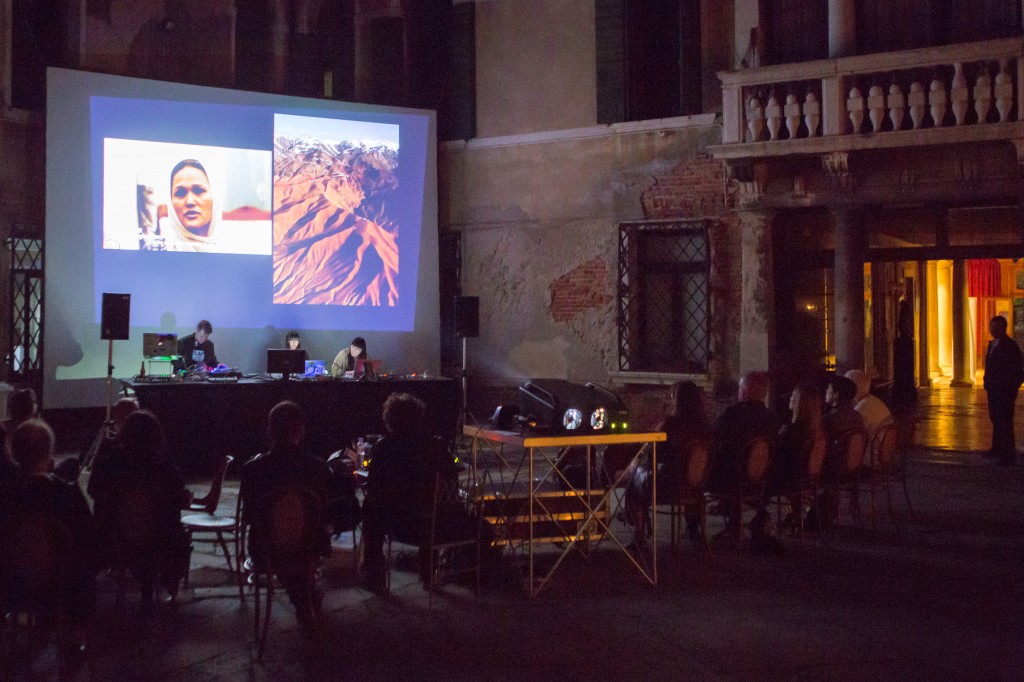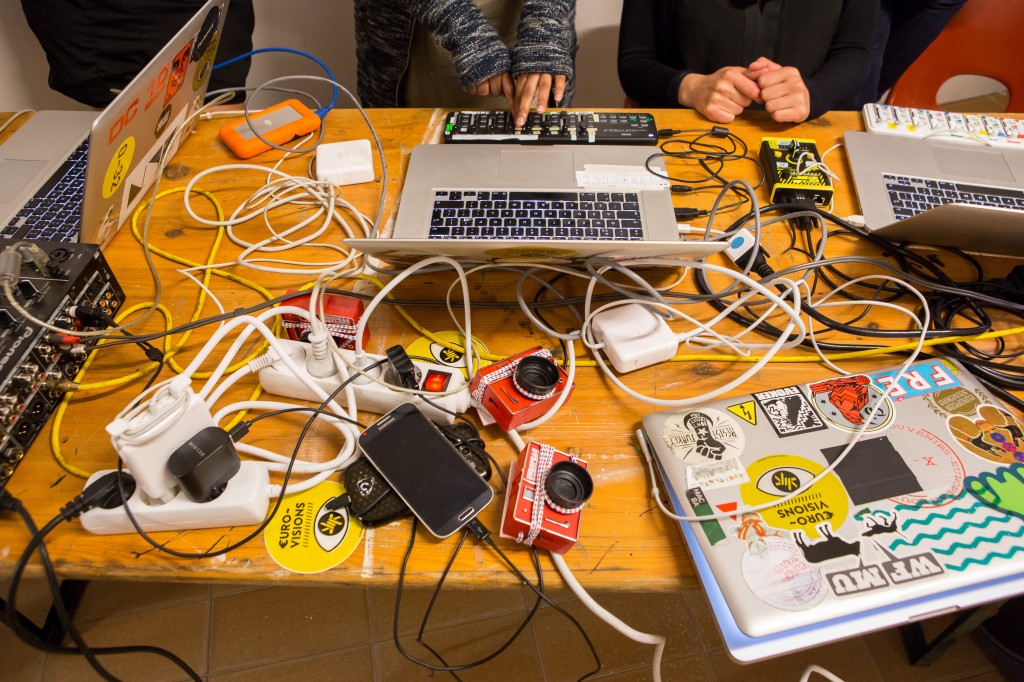Why Europe doesn’t make us dream: live cinema on migration and media representation
|
If we are already realizing that, in our society, monitoring processes using advanced technologies are closer to fact than science fiction, we can say that border control, as it exists in Mediterranean and southern Europe (but also in Eastern Europe and at airports in England, France or Holland), places us in one of the most militarized areas within a supposed society of welfare and freedom. This militarization is the basis from which media constructs suspicion and fear of people who have migrated. Normally the migrants’ journey is the result of a personal decision to seek out a new life. This is, in itself, a wrenching process, but people who migrate also face additional obstacles: the mafia, government barriers, pockets of poverty in areas close to the border, having to jump fences, crossing seas in dangerous conditions or sneaking through customs hidden in cars or trucks, etc. On top of this, they must bear the social stigma of criminalization or misery. Why hasn’t the media been able to refine and build a complex discourse on migration? Why are pictures of fences and canoes used to generate fear and paralysis against the material conditions of peoples’ existence? Why do we still have a colonial past that we impose on the present by using words like “Moors”, “Machupicchus” or “Negroes”? In this broth, and with these questions, arises Remapping Europe, a project that gives theoretical coverage and context to create the live cinema performance €urovisions, which reflects on the words migration, media, representation and imagination. This audiovisual show, which was recently seen at REALISE & RESIST at the 56th Venice Biennale, consists of music and film produced live from audiovisual materials generated during Remapping Europe (where over 50 young migrants from across Europe built their own media representations) along with Creative Commons licensed TV archives such as Al Jazeera’s and work by artists like Filip Berte who explored the Melilla fence with a camera. This audiovisual proposal, which could be understood as an expanded documentary, is a way to recover the idea of a theatrical event. Cinema is created live to tell the stories in a nonlinear way, using techniques of film language but also performance and music. €urovisions, a project produced by Doc Next Network with support from the European Union and the European Cultural Foundation, was released in Seville and Amsterdam’s Eye Film Institute in April and May 2014 and has also been seen at the Barcelona’s Contemporary Arts Museum (MACBA). The team behind the proposal, coordinated by ZEMOS98, comes from five different countries: Poland, United Kingdom, Japan, the Netherlands and Spain. It is a commitment to creating a space for humanistic dialogue and the dissolution of borders,for rethinking and remaking the European imagination departing from the personal stories of migrants. €urovisions is an audiovisual show created and performed live by Karol Rakowski (Poland); Okaku Noriko (Japan / UK); Farah Rahman (Netherlands) and Malaventura (Spain); English support collective The Light Surgeons and technical and artistic coordination of ZEMOS98. Translated by Matt Cuzzner & Carlos Delclós |



